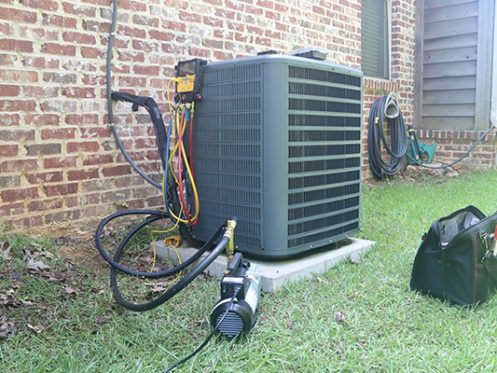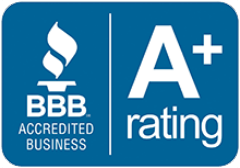When choosing a new central air conditioner or heat pump, energy efficiency should be a primary concern. A high-efficiency unit may cost more than a basic one, but the increased efficiency leads to lower energy bills and a smaller carbon footprint. As you shop for a new AC or heat pump, consider the overall picture instead of just focusing on the upfront costs. A higher-rated, more efficient unit will often be the cheaper option in the long run.
The main thing to focus on when selecting a new cooling system is the unit’s Seasonal Energy Efficiency Ratio (SEER). Unfortunately, SEER ratings can be confusing. To help clarify things, here is everything you need to know about SEER ratings and what information they can provide.
An Introduction to SEER Ratings
The Air Conditioning, Heating, and Refrigeration Institute developed the SEER rating scale to more accurately measure the energy efficiency of cooling equipment. The scale shows approximately how much total energy a unit would use during a typical cooling season. It is essentially a ratio of how many British Thermal Units (BTUs) of cooling are produced to how many watt-hours of electricity the unit consumes.
Prior to SEER, cooling units were measured using the Energy Efficiency Ratio (EER) scale. Unfortunately, the EER scale isn’t all that accurate. It is basically a snapshot of BTUs produced in one hour or one day compared to the watts of electricity consumed. EER doesn’t account for environmental factors, like temperature and humidity, which play a major role in how quickly a unit cools and how much energy it consumes.
SEER is far more accurate because it looks at the total energy consumption over the entire cooling season. This seasonal approach is vital since an AC or heat pump will always use more energy on hot, humid days than during the milder weather in spring and fall.
Minimum SEER Requirements
The United States federal government has mandated minimum SEER requirements for many years. These minimum efficiency standards recently increased at the beginning of 2023. In Kentucky and throughout the rest of the southeast and southwest, the minimum requirement for all new central air conditioners and heat pumps is 15 SEER. In Indiana and the rest of the northern U.S., it is only 14 SEER.
This is up from the previous minimum in this area of only 14 SEER. If your unit was installed before 2006, it might only be 10 SEER, which was the minimum requirement until that year.
Using SEER to Estimate Annual Energy Usage
The main benefit of SEER ratings is that they make it easy to estimate the yearly and lifetime energy consumption for any air conditioner or heat pump. The higher the SEER rating a unit has, the less energy it will consume. However, SEER only measures energy efficiency and does not impact how many BTUs the unit produces or how quickly it can cool. These factors are determined by the size of the unit.
Our experienced technicians can help you determine the proper size system you need based on your square footage and other factors. Once you know the unit size you need, you can use SEER ratings to estimate your average energy costs when looking at different units. For every single-unit increase in SEER value, energy efficiency improves by approximately 7%.
Let’s say you currently have a three-ton, 13 SEER unit. On average, this unit would cost somewhere around $400 per year to run. If you upgrade to a three-ton, 18 SEER unit, your yearly cooling costs would drop to around $140. Based on an estimated lifespan of 15 years, you could save more than $2000 over the life of your new unit.
Performing this type of calculation can be extremely helpful when comparing different units. If the energy savings are around the same or more than the price difference between the lower and higher SEER unit, it is almost always a smarter long-term financial decision to go with the higher SEER unit. Of course, the higher the SEER, the better it is for the planet.
At OnTIME Service, we specialize in the installation, maintenance, and repair of ACs and heat pumps. Our technicians will explain your various options so that you can choose the best unit for your home and budget. We also install furnaces, ductless mini splits, and geothermal HVAC systems, and we offer expert indoor air quality and plumbing services. Give OnTIME Service a call today to schedule any residential or commercial HVAC service in Henderson, KY or the Tri-State area.









